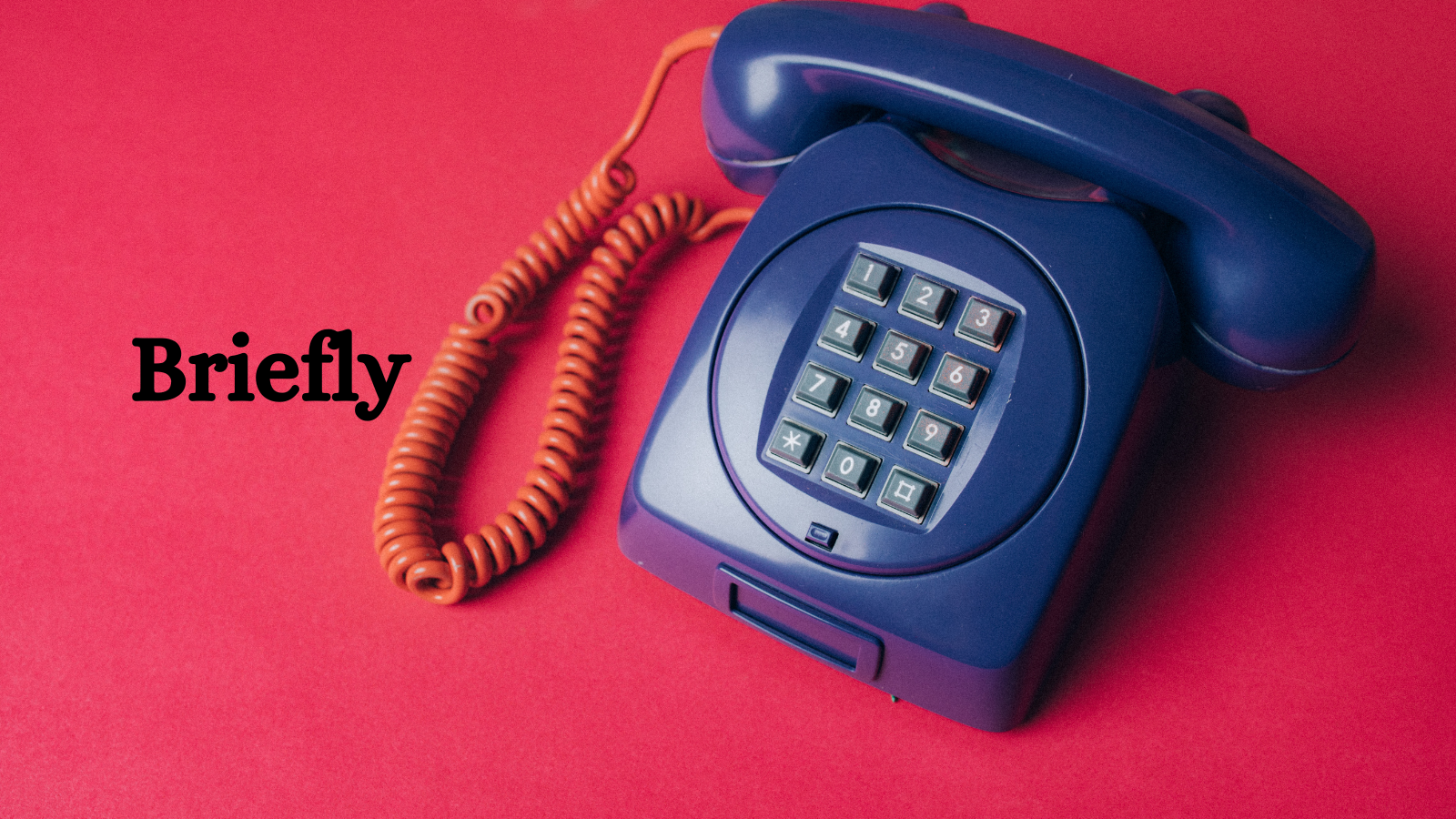Cell Phones, Radio, and the Philosophy of Marshall McLuhan

Breaking down a 21st-century matter by bringing back a 1960s icon.
My first cell phone was the Motorola RAZR V3. That was in 2005.
I didn’t use it a lot at first, but it made me more accessible to my clients. I would often use it to return calls while walking, so I could exercise and earn money at the same time.
I did this the third day I had the phone, walking back to the office after lunch. I called the client at Point A and ended the call a half mile later, at Point B.
After I hung up, I felt like I was waking from a deep daydream. For a moment, I couldn’t even remember what route I had taken from Point A to B, though I had walked the route over a hundred times.
Since then, I’ve grown more use to walking and phoning, but I found that first experience a little unnerving.
How do you like to multitask?
I like multitasking if it’s the right kind. Reading a book while waiting for laundry to dry: smart multitasking. Reading a book while interviewing for a job: dumb multitasking. Ordering a Pabst while the head on your Guinness settles: fun multitasking.
What about multitasking with the cell phone?
Everyone has heard the debate about driving and cell phones. One study says that cell phone driving is as dangerous as drunk driving. The National Safety Council’s website declares there’s “No Safe Way to Use a Cell Phone and Drive,” then links to a white paper about the “cognitive distraction” of cell phone use and noting that “hands-free” doesn’t make much difference.
Yet hands-free cell phone use is still legal in all 50 states and most states even allow hand-held cell phone use while driving. Tons of people still use their phones while driving and claim it doesn’t affect them and oppose laws to make it illegal.
I don’t want to enter that debate here, but I will admit to missing an obvious left-hand turn once while using my cell phone. I also remember my dream-walking experience. Those two experiences combined make me think phoning and driving is about as safe as spitting on Chuck Norris.
But why? I can talk with a passenger and drive. I can listen to the radio and drive. I can even listen to the radio, drink a Big Gulp, and bop my head to the beat while I drive.
Why not chat on the phone?
Enter Marshall McLuhan
A household name in the 1960s, Marshall McLuhan has been largely forgotten today. His central theory is that human modes of thinking are altered by media. Media are “extensions” of ourselves, things that add themselves on to what we already are, and when we use them, they change us in some way, often psychologically. The simplest example is the saying, “To a man with a hammer, everything looks like a nail.”
His most famous saying is, “the medium is the message,” by which he means the important part of a medium is the medium itself. The important thing about books isn’t their content (their “message”). The important thing is their “bookness”: how does the act of reading from a book, or the fact that we have books instead of scrolls, affect how we think, live, and behave?
It’s too bad he’s been forgotten. I think he would’ve diagnosed the cell phone/driving issue quickly.
In his magnum opus, Understanding Media (1964), McLuhan wrote: “The telephone demands complete participation.” He pointed out that some people could scarcely talk to their best friends on the phone without becoming angry, precisely because it’s such a demanding medium.
Basically, McLuhan said, the telephone is a jealous taskmaster:
“Why should we feel compelled to answer a ringing public phone when we know the call cannot concern us? Why does a phone ringing on the stage create instant tension? Why is that tension so very much less for an unanswered phone in a movie scene? The answer to all of these questions is simply that the phone is a participant form that demands a partner, with all the intensity of electric polarity.”
As a further example, he mentioned a postal incident in 1949, in which a “psychotic veteran, Howard B. Unruh” went on a mad rampage in Camden, killed thirteen people, then barricaded himself in his house and exchanged gunfire with police. A reporter called Howard on the phone. He stopped firing and answered,
“Hello.”
“This Howard?”
“Yes. . . .”
“Why are you killing people?”
“I don’t know. I can’t answer that yet. I’ll have to talk to you later. I’m too busy now.”
The Headset: Revolt against the taskmaster
The telephone, McLuhan said, is a very cool (as in “cold”) medium.
“Hot” media and “cool” media were McLuhan’s buzz dichotomy. A hot medium is one that intensely extends one of our senses. The radio is a hot medium: ear only, and a lot of it. But it leaves the other senses free to do what they want.
The telephone, on the other hand, is an extremely cool medium. The ear doesn’t receive much information, forcing the user to participate, to fill in the gaps.
I think McLuhan was right. You ever wonder why you have to say “uh-huh” frequently during an otherwise-monopolized phone conversation? It’s because the medium demands your participation.
Years ago, a friend told me about his 102-year-old mother with severe dementia. She couldn’t hold a coherent conversation unless it was on the phone. On the phone, she was pretty good. In person . . . not so much.
Have you ever experienced a sense of agitation while on a lengthy telephone call? It used to happen to me all the time. I needed to tell myself that I was getting “worked up” for no reason and to relax. My co-workers said it also happened to them. That was in the 1990s.
And then we all get headsets and the problem abated. Not entirely, but it was a lot better.
Headsets in the office are common now. People can’t even imagine doing their job without them. They can stand, walk around, look out across the office or their window, whatever. Such little things let out a bit of the pressure of using a demanding medium like the phone. It’s not surprising that office headset sales alone are a billion dollars annually.
The mere fact that headsets are so popular today testifies to the power of the phone.
The phone is, indeed, a demanding taskmaster like McLuhan said. People forced to use it for hours a day in order to make a living want relief from its engrossing command, like slaves who would work as slow as possible or goof off whenever the foreman wasn’t watching.
The headset is a type of goofing off. It gives the metaphorical middle finger to the phone’s demanding personality.
Red hot and freezing cold
Juxtapose the headset’s popularity with phoning while driving. Headsets are popular because they provide relief from the phone’s freezing cold demand of “complete participation.”
The act of driving is pretty easy, but it entails a lot of attention: accelerating, braking, signaling, turning, watching other cars, making sure that kid or dog doesn’t dart out, listening to your GPS and wondering why she has such a weird accent.
Both the phone and driving, in other words, require a lot of cognitive space. The phone because it’s such a cool medium. The car because it requires so much attention and the stakes are high (it weighs a ton and moves at high speeds).
Although McLuhan died well before the consumer mobile phone, I have little doubt he would have pointed out that driving and talking on the phone are incompatible activities, specifically because the phone is such a “cool” medium that commands complete participation, making it very difficult to do all those things required to drive.
It’s also interesting to note that I’ve never heard of McLuhan objecting to car radios. It makes sense. Whereas the phone is a very cool medium, the radio is red hot: ear only, and a lot of it. It takes up very little cognitive space, leaving the user free to do other things at the same time. Like driving.
Unsurprisingly, as a culture, we’ve been listening to the radio and driving for over 75 years with few problems.
Bring back the media maven
I mentioned above that I have no desire to enter the debate about outlawing cell phone usage. Although I think this piece is relevant to the debate, that isn’t my purpose in publishing it.
My purpose is to show how relevant Marshall McLuhan is and, hopefully, introduce more people to his philosophy.
Fortunately, he has been enjoying a renewal recently, fueled, it would appear, by increasing curiosity or concerns about what the Internet is doing to our brains. Understanding Media has undergone at least twenty printings over the past 20 years.
Still, I rarely see his ideas discussed or written about. If I had to guess, I suspect fewer than a tenth of 1% of people in the U.S. have even a remote acquaintance with his ideas.
As illustrated by the analysis of the cell phone and driving, he has a lot to tell us. It’s time he enjoyed a strong renascence.
If this piece contributes to the cause, I’m gratified.
Loosely related




